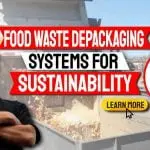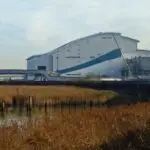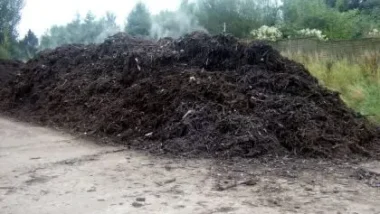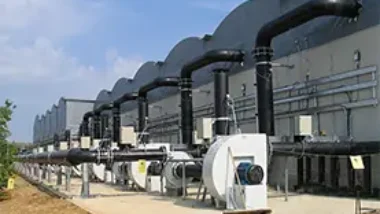Making Energy from Waste by incineration should not still be accused of being a significant threat to the health of nearby residents. We wish to explain why a modern incinerator is not a health risk.
Concerns about pollution and particularly the discharge of trace amounts of dangerous substances into the area around an incinerator are usually unfounded, but only wherever there are strong regulatory bodies to monitor incinerators independently.
European Union Waste Incineration Directive
Referring to an EU Directive at this point might set my readers yawning, but this one has been beneficial to all European Countries.
In truth, the WID, or to give it its true name, the European Union Waste Incineration Directive, has acted as a very important driver and as a milestone in the development of ever better clean-up processes for incineration plants.
Modem Energy-from-Waste plants are fitted out with up-to-the-minute air pollution control systems ( APC ), and they don't any longer impose any real risk to the environment or to human health from emissions.
No More Dioxin Shocks
The likes of the dioxin shocks of the 60s and 70s should not ever be repeated. EU emission rules for incinerators have been in place and precisely enforced since the fulfilment of the WID toward the end of 1990, which was instrumental in setting severe and uniform EU-wide emission boundaries.
Incineration is Not Perfect
Now, we would fully accept that no one can claim that any technical process will ever reach a completely zero release, but a safe and extremely low level of release of the appropriate components in the emissions can be and is being achieved, routinely throughout dozens of modern incinerators currently in operation.
Permit me to explain a little bit about how this is being done. The 1st approach has been to install what could be called front-end methodologies. The object of these has been to considerably improve the combustion process, control the cooling phase, and implement abatement technologies as early in the midst as practicable.
Avoidance of Pollutant Creation During Incineration
Modern incineration technologies are now structured so the first attainment has been to avoid the conditions, as far as possible which create these poisons in the combustion process. While some trace levels of these poisons are still produced the amount is minimized to a safe level.

Flue Gas Clean-Up Technology has Advanced
The second feat lies in the much-improved technology employed in the clean-up process on the flue gases after combustion, as they pass on their way to the chimney. A good range of micro-pollutants – which are ever-present in the environment and thus present in all waste materials – are removed at this time. Incinerator bottom ashes are of much-reduced mass and volume, but it is critical that these can be processed and ditched sustainably, after the results of the combustion process. These pollutants in the ash must be characterized punctiliously.
Residual metals could be in higher concentrations, for instance. But again by making improvements to the combustion technology, modern incinerators do guarantee an exceedingly consistent and prime quality ash. It's been most significantly the facility to achieve a reliably full burnout of the waste, and better control other considerations which define the standard of the bottom ashes, that has moved forward from the incinerators of the past, now no longer operating because of the WID.
Bottom Ash Quality and Incinerator Emissions
When we are taking a look at issues surrounding energy from waste plant ash quality and incinerator emissions often it's also crucial to maintain a carefully balanced point of view by considering standard practice and emissions levels from commercial and domestic combustion.
Incinerator emissions may very well now be cleaner than their “natural” counterparts. Also comparing the usages to which today's bottom ashes are being put, against standard sources of so-called “natural” building materials, shows the supremacy of incineration.
Incinerator Ash is Used in Road Construction
Energy from Waste Plant bottom ashes are to be used, for example, as a substrate for road construction, where they replace what would instead be freshly quarried material.
Several nations which are renowned for their progressive environmental policies have recognized that modern Energy-from-Waste plants can be effective tools in reducing dioxins levels, and lots of new EfW plants are scheduled and being built.
No One Solution Fits All!
Now, for any government or waste authority to put an over-dependence on one waste treatment methodology would be perilous.
The other ECU Waste Directives recognize this and incineration obviously can and must only be implemented as only one of the numerous waste technologies, which should be developed in each area to effect the so-called “waste hierarchy”.
The guidance here is to be sure that options like incineration, and finally landfilling also only become active when all materials that may be disposed of by other more tolerable techniques, eg re-use and recycling, have been applied. Especially to those parts of the waste flow which can often be segregated out into those better waste streams.
This is the final solution (once healthy competitive markets become established in these materials), to the issue of handling MSW in an economical and sustainably reasonable way.
Flare Stack Suppliers – Flares for Methane Emission Reduction
In this article, we provide a roundup of flare stack suppliers, the stacks they produce and developments in the flare stack market, with an emphasis on the landfill gas, and biogas flare stack market. These are mostly enclosed flares for methane emission reduction and use during Energy from Waste plant downtime. On This Page Flare […]
Food Waste Depackaging Systems for Sustainability and Microplastic Reduction
Food Waste Depackaging systems are increasingly being designed for sustainability and microplastic reduction which many would say is vital for the survival of our planet. Many people are interested in the rapidly growing anaerobic digestion sector, which uses mechanical equipment called depackagers or separators, to produce contaminant-free food waste slurries that may be piped into […]
Recycling Facts: The BIG List!
Waste Incineration Plants (also known as WtE facilities) should not be installed as a replacement for material recycling. WtE is designed to complement recycling programs because not all waste is feasible to recycle. Incineration is an engineering process that uses thermal decomposition in a highly oxidative environment to decompose organic molecules into simple compounds, predominantly […]
Integrated Waste Management
This is the final solution ( if good competitive markets become established in these materials ), to the issue of handling MSW in an economical and sustainably reasonable way. From this realization, has recently, appeared the idea of Integrated Waste Management ( IWM ). IWM is the integration of different waste treatment strategies to reach […]






According to my experience, authorities have little motivation to utilise incinerators. Councils always have an incentive to recycle since they either gain money from selling it or the disposal fees for recycling are significantly lower than burning. Recycling is significantly more valuable than garbage. However, as garbage accumulates, it must be disposed of in some manner.
Furthermore, there is a genuine case for considering incineration, which is that we already transport garbage abroad and will need to send more if waste rises as expected, and this emits considerably more carbon than incinerating at home. It’s also frequently sent to impoverished nations, and not always in significantly worse incinerators with inferior filters. This is something that should be considered in a fair examination.
The emphasis should be on the government rather than on the councils. The government can enact legislation to minimise the quantity of garbage created in this country. If it happens, perhaps we won’t need additional incinerators. If it doesn’t, we do. The government is not acting quickly enough and has actually rejected initiatives to decrease waste, such as the fast fashion tax.